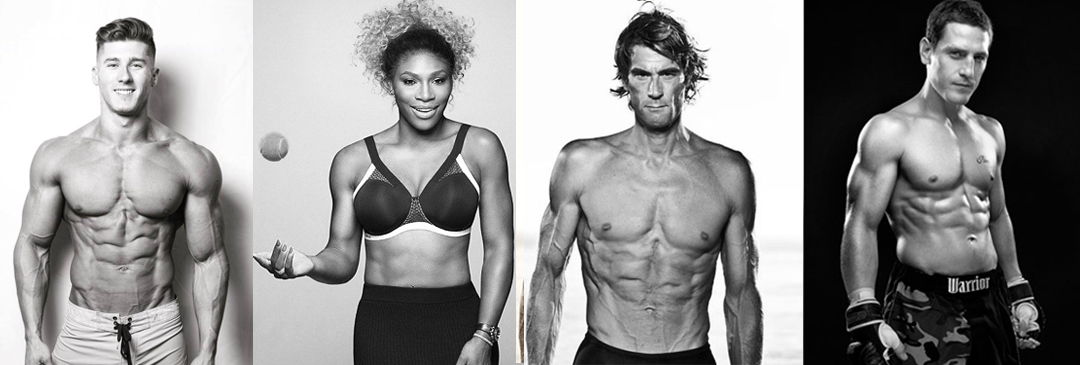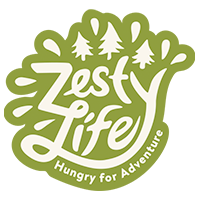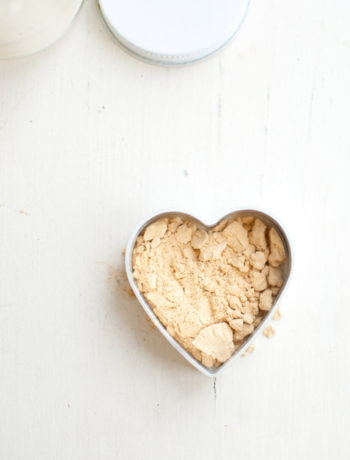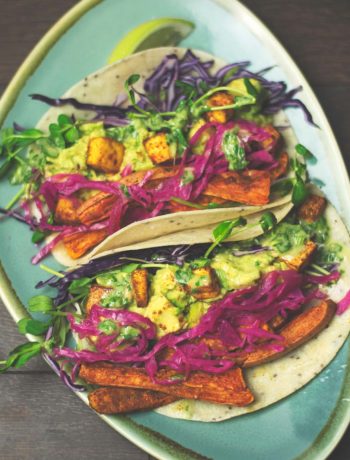Why vegan is so vogue
Vegan athletes like Brendan Brazier, Rich Roll, Venus & Serena Williams, Novak Djokovic, Scott Jurek, Nimai Delgado, Tom Brady and Georges Laraque are changing the stereotypes, showing us that plant-based eating cannot only build strong muscles, but can keep you healthy enough to ride a bike, play tennis or hockey, run or pump iron at an elite level.
The vegan movement is growing. Many people are setting Bessie free and picking up plants. However, change is uncomfortable, and there’s enough confusing information out there to easily want to stay put. I can’t make the decision for you and I’m not a doctor or a registered nutritionist, but I can share my experience and the things I’ve learned…
Plant performance
Vegan athletes are claiming that they are lighter, stronger, more successful and healing faster with a plant diet. But to really tap into your full potential, you’ll need to not only nix the animal products, you need to eat a lot more of the good stuff—and I don’t mean fake meat substitutes—I’m talkin’ veggies, fruit, beans, quinoa, rice, nuts and seeds. About 75% of your plate should be plant foods like leafy and cruciferous vegetables—whether or not you’re vegan, eating more plants seems the smarter path to longevity. Here’s what I eat on an average day →
My vegan experience
I switched to a plant-based diet last year, really to explore something new. I thought it would be a fun experiment, but the positive results were more than I’d imagined.
Besides having glowing skin, more energy and better digestion, I noticed by removing meat, eggs and dairy I didn’t have the post-meal fatigue—plants don’t bog down my body. Eating one of my Zesty Life Bowl’s full of veggies, yams, legumes, avocado and rice, or big salad with things like kale, nuts and roasted farmer’s market potatoes keeps my body crankin! I’m usually up working by 6am, ride my mountain bike for a couple hours each morning, do Pilates two+ times a week, roadbike 2-3 times a week, run my own business and I still have energy and mental focus to spare at the end of the day for an evening dog walk or paddleboard.
High-steaks advantage
Every athlete is looking for an edge. Does this sound familiar? You’d like to lose a few pounds, lean out and gain more muscle tone, but you’re having trouble figuring out how. Perhaps you struggle with post-workout inflammation and fatigue and can’t do the amount of consecutive workouts you’d like. Or maybe you have a health condition that just isn’t getting better. The solution could be hiding in plain sight…
Plants provide a super clean digestive system
When you’re eating lots of fruits, veggies and whole grains, all that fibre helps to optimize digestion, remove toxins from your body, stabilize blood sugar levels and protect against cancer and heart disease.
Plants optimized cardiovascular health
Because a plant-based diet is low in cholesterol and saturated fat, you can maintain great cardiovascular health with ease. Lowering your cholesterol levels reduces your risk of heart disease and stroke by keeping your arteries clean. An optimal cardiovascular system helps to ensure that you can ride longer, jump higher, and train harder on a regular basis with quick recovery times between workouts!
Plants improve recovery
Meat and dairy products are known to produce high levels of acid in the body, leading to inflammation. A plant-based diet produces an alkaline state in your body rather than acid, which lowers risk of inflammation and can actually improve your post-workout recovery—I’ve personally experienced noticeably faster recovery from workouts and injuries.
Plants improve clarity of thought
Food doesn’t just repair and nourish our physical bodies; it improves clarity of thought. It’s a key to unlock your soul to ponder new ideas, strategies and possibilities—and light the path to your ultimate potential and most authentic self.
But where do you get your protein?
The same place your protein gets its protein. Protein contains essential amino acids, meaning our bodies can’t make them; and so, they’re essential to get from our diet. But the animals you eat don’t make them either! All essential amino acids originate from plants (and microbes), and all plant proteins have all essential amino acids.
It’s a common misconception that one can never get too much protein. In fact people are obsessed with protein these days! “Gotta get my protein!” However, these people are often unaware of the health risks associated with a high-protein diet; excess protein has been linked with cancer, osteoporosis, kidney disease, and calcium stones in the urinary tract.
All nutrients come from the sun or the soil. Cows, for example, get their nutrients from the sun and from plant-based foods like grass and hay. So if cows eat plants, and plants provide cows with all the nutrients they need, why would we assume steak is a more complete protein than the food that provides the steak with its nutrients? The answer: We shouldn’t. There are lots of plant sources of protein such as: Beans (Black, Kidney, Pinto etc), Quinoa, Lentils, Spinach, Edamame, Broccoli, Hemp hearts.
*These athletes have no problem getting protein on a plant-based diet
What about calcium?
The calcium in a cow’s milk came from all the plants she ate, which drew it up from the sun and soil. Eating plant-based is cutting out the middle-mooman, and getting our calcium from the plants directly. There are lots of plant sources of calcium such as: Dark green leafy vegetables like kale, collards, spinach and mustard greens, beans, rhubarb, tofu, figs, cabbage, sesame seeds, seaweed, broccoli, chia seeds, tahini, edamame, oranges, almonds, kidney & white beans, almond & coconut milk, herbs.
Iron, Man
A few rich healthful sources of iron are leafy greens and beans, kale, squash, pumpkin seeds, spirulina, sweet potatoes, peas, raisins, dates, figs, nuts, amaranth, broccoli, tofu, potatoes, apricots. And to increase iron absorption, you should be adding in foods that are high in vitamin C such as citrus fruits, berries, mangoes, kiwifruit, papayas, pineapples, melons, sweet peppers, etc.
How ’bout Vitamin B-12?
Vitamin B12 deficiency is not only found in vegans, but meat eaters alike. It’s important for many people to ensure they’re getting enough b-12. I recommend and use “mykind Organics B-12 Spray”. This product is made from Vegan Methylcobalamin—a naturally occurring non-synthetic form of B-12.
Getting enough nutrients
As an athlete, your focus should be on performance and muscle recovery. That means eating enough to fuel your activity and replenish your muscles. Training breaks down muscle tissue, and the nutrients in food rebuilds it.
If you switch to vegan, you must do it right. People who fail or lack performance gains typically do one of two things: they become junk-food vegans and don’t get enough nutrients, or they simply don’t eat enough. If you’re choosing to load up on refined starch from pasta and bread or you’re starving yourself on salad and water, either way you’ll be robbed of energy due to lack of nutrients. Yes, choosing vegan eliminates many foods that are highly processed or high in saturated fat, but there are still plenty of less-healthy vegan options you need to avoid—french fries, chips, and candy might be vegan, but are definitely not healthy!
Meat your maker
Giving up meat and dairy is one of the best things a person can do to decrease their risks of developing cancer or experiencing cancer cell growth. A study out of Loma Linda University funded by the National Cancer Institute reported that vegans have lower rates of cancer than both meat-eaters and vegetarians and in certain cases showed a 34 percent lower rate of specific cancers. Women placed on plant-based diets for just two weeks, for example, were found to suppress the growth of three different types of breast cancer. The dramatic improvement in cancer defenses after two weeks of eating plant-based is thought to be due to changes in the level of a cancer-promoting growth hormone in the body called IGF-1—which we consume from dairy.
Nobel Prize winner Elizabeth Blackburn; found that a vegan diet caused more than 500 genes to change in only three months, turning on genes that prevent disease and turning off genes that cause cancer, heart disease and other illnesses. This is empowering news, given that most people think they are a victim of their genes, helpless to stave off some of the most dreaded diseases. We aren’t helpless; in fact, the power is largely in our hands—or in our fridge!
As easy as 1-2-pea
There are many misconceptions that eating a plant-based diet is super complicated or really expensive or time-consuming, but I’ve found it to be quite the opposite, most of what I eat is simple to make—and typically less expensive than meat and dairy products. You’re also not worrying about e. coli, salmonella or if your food is under-cooked.
If you’re thinking of dabbling in the plant-based way of life, don’t let perfection be the enemy of progress. Working toward a goal like a big race means realistically, you might mess up a bit. Just don’t give up. Keep moving in the right direction, and go easy on yourself.
We’re all capable of so much more than we allow ourselves to be, and the path to unlocking your inner potential starts with what you put in your mouth.
—
Links to meat & dairy-related disease articles:
http://www.richroll.com/podcast/neal-barnard-2/
http://www.cancer.ca/en/cancer-information/cancer-type/prostate/risks/?region=on





No Comments